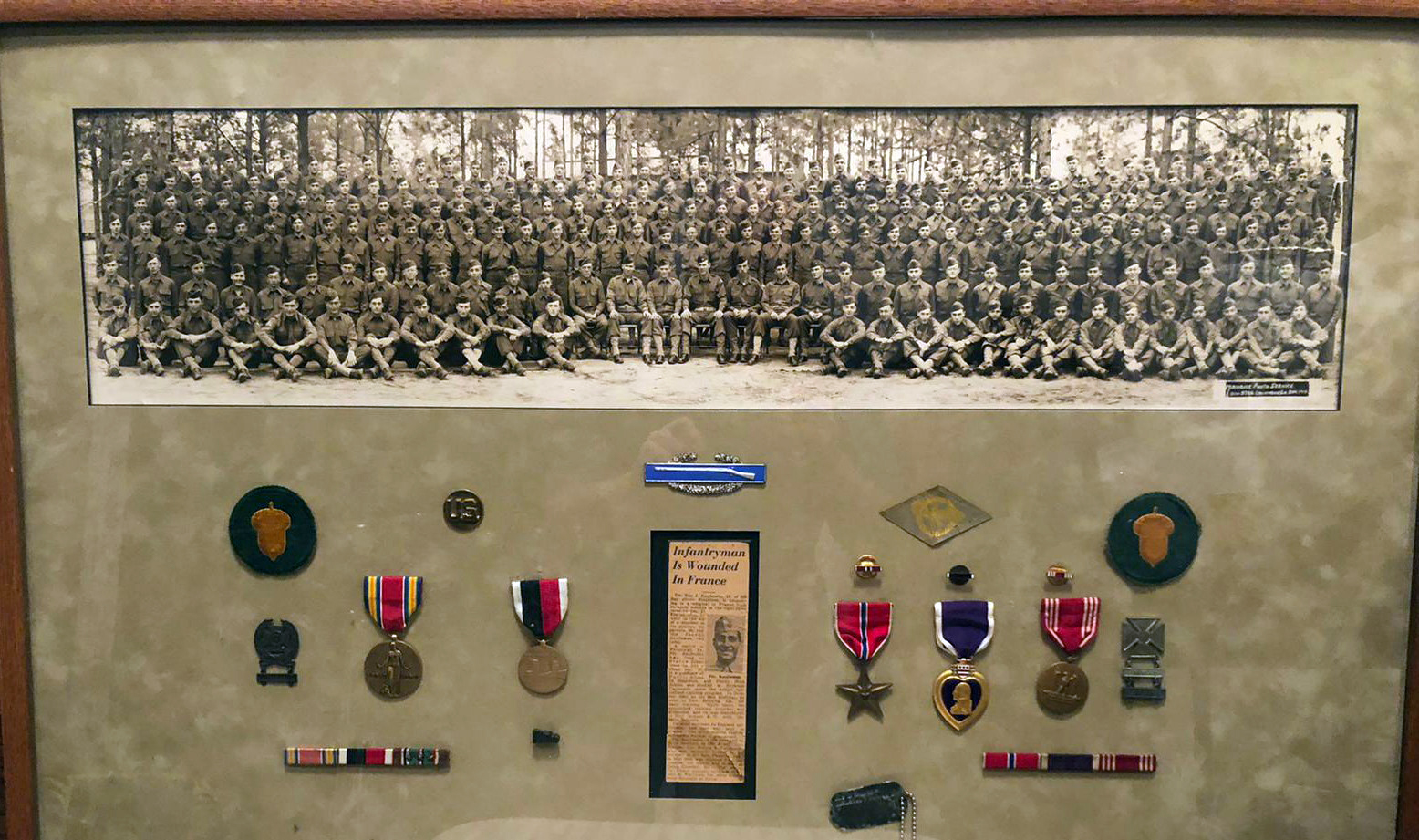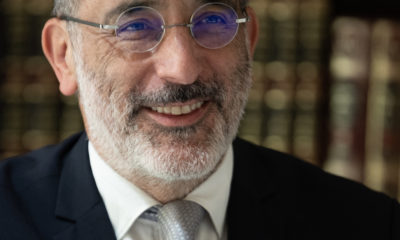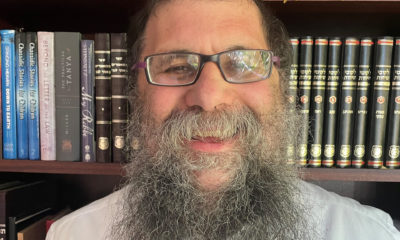
Religion

The mezuzah that saved a life
Published
3 years agoon
“And you shall inscribe them upon the doorposts of your house and upon your gates in order that your days may increase and the days of your children…” (Deuteronomy 11: 20-21)
The mezuzah has long been associated with protection. It has been compared to a helmet which a soldier wears in battle in order to protect him from enemy fire. The Torah states that in the merit of mezuzah, your life and the life of your children will be lengthened. I can definitively say that I wouldn’t be alive today if wasn’t for a mezuzah.
A mezuzah is traditionally placed on the doorframe of your home. However, there is an ancient custom mentioned in the Talmud that people would place a mezuzah in their walking sticks for additional protection while on the road. This is a story of one such mezuzah.
Ray J. Kaufmann was a short, quiet, and intelligent man. He was a civil engineer, had worked at NASA (the National Aeronautics and Space Administration) and Boeing, and was a World War II veteran. He was also my grandfather. I don’t remember much about him. By the time I was old enough to remember, his Alzheimer’s had already set in, and he generally didn’t say much.
As a kid, my family would go to visit Bubby and Grampy every Sunday. I would often go into his office to play while he was sitting at his desk, usually painting. There was a frame hanging on the wall of his office. It housed a large picture of his army battalion, the 87th Acorn Infantry Division, as well as various medals and stripes he had received for his service during the war.
One of those medals was a purple heart. The purple heart is a medal that is given to a soldier wounded in action. We all knew the story behind it. It was one of those family stories that was told and retold countless times.
In 1944, my grandfather was living in a small apartment in Staten Island, New York, overlooking the New York Bay. He would watch from his living room window as ship after ship was loaded with soldiers and would disembark for war-torn Europe. In early 1944, he enlisted to join the United States Army. He was sent to Fort Benning in Georgia for basic training. Upon completion, his unit was sent to Camp Kilmer with orders to embark for England. Camp Kilmer was close to Staten Island, so he received permission to visit his family once more before heading off to war.
It was October of 1944, and it had been quite some time since he had seen his parents. They were surprised and thrilled to see him. Before he left, his mother, Nana Helen, gave him a mezuzah on a chain, and told him to always keep it with him. They weren’t a religious family, but they were very proud that they were Jews.
Grampy said his goodbyes and hung the mezuzah around his neck with his dog tags. It was a tiny mezuzah, no more than two to three centimetres in length. It was in a silver case and the small “shin” on the front was embellished with three little coloured gems.
My grandfather shipped out, and made it safely to England. From there, his unit was sent to the small French city of Metz. The Germans were just beginning their last offensive of the war, the Battle of the Bulge. They were to make their way to Luxembourg via the small French city of Metz.
The journey was treacherous, and his unit had to make its way under constant fire from the Germans. They reached Metz safely, and after a short rest, pressed on. After a few days of marching, they reached a forest and were able to make camp.
At about 01:00, my grandfather was woken up by two soldiers. One of the soldiers had fallen ill and they needed help getting him to the aid station. Grampy was the platoon runner, so this was one of his responsibilities. They started down to the aid station, and after about 10 minutes en route, he heard a tingling noise coming from around his neck.
He reached his hand inside his jacket to feel his dog tags and mezuzah, and passed out. He woke up in the field hospital in Metz. The doctor informed him that a piece of German shrapnel had hit him directly in his chest. It would have gone into his heart, killing him instantly, but there was this little metal charm that deflected the shrapnel into his lungs, saving his life. The shrapnel remained in his lungs until the day he died.
There was a second incident in which Grampy was miraculously saved.
After months of recuperating in various hospitals, he was re-assigned and sent to a camp outside of Nancy, France. In April 1945, his unit received orders to prepare to ship out to the Pacific front, as the war in Europe was nearing its end. The weekend before they were to ship out, my grandfather and a couple of friends decided to go into Nancy for one last night on the town. They hitched a ride and spent the night drinking at various pubs in town. There was a midnight curfew for soldiers. With midnight approaching, they hitched a ride back on a truck carrying other military personnel.
As my grandfather described it.
“It was raining, and the road was slick, but we were too intoxicated to care. Suddenly, I was sober and standing in the middle of the road trying to flag down passing cars. I heard moans and groans all around me. I soon realised that the driver had lost control and skidded off the road right into a tree. There were 12 soldiers in the truck. Three of them were dead, two had serious head injuries, and everyone else besides me had broken bones and serious internal injuries. I had a few scratches and a mild concussion.”
My grandfather spent the next two weeks in hospital, and while he was there, his unit shipped out for the Pacific.
I remember seeing this mezuzah when I was a kid. It had an almost mythical aura to it. This was the mezuzah that saved Grampy’s life. In a way, it’s fitting that today, I spend my time writing mezuzahs. Unfortunately, the mezuzah was destroyed in Hurricane Katrina. However, although the physical mezuzah is no longer, its legacy will live on forever.
- Yosef Kaufmann is American import, a sofer, children’s author, and most importantly, a father and husband.










